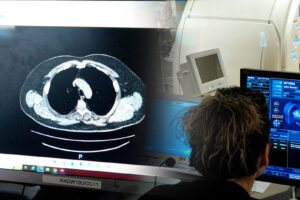These 5 data points show Baltimore’s startup development over a decade
UpSurge Baltimore looked at the numbers behind the city’s startup ecosystem. It shows concentrations of early-stage companies, and support from institutions.
Published 6/1/2021 on Technical.ly Baltimore
Baltimore’s tech community is home to a mix of startups testing new models and growth companies scaling up. They are getting supported by incubators, funded by investors and in some cases are being acquired by others.
This is a cycle we’ve seen happen with more regularity, and it’s part of the narrative of the city’s innovation economy. But any effort to grow it requires a look at the numbers to see whether progress is being made. So as UpSurge Baltimore recently launched its organization that is aiming to make Baltimore an innovation destination through the lens of “equitech,” the team dug into the data.
“We felt like it was really important that we are accountable not just in anecdote, but in data,” said UpSurge Baltimore CEO Jamie McDonald. “And in order to do that we need to be really clear about, what’s the baseline.”
So the team dug through the data and compiled numbers for the period from 2011 to the end of 2020, sourcing Pitchbook data. Take a look at the full report. Here’s a look at key takeaways from what they found:
Nearly 200 Baltimore-based and founded companies are active, and financially backed.
Of 193 companies, about 90 of those have funding of greater than $500,000.
“It’s an ecosystem that is certainly still young and up-and-coming, but I think has a lot more depth than a lot of people realize,” McDonald said. And the cumulative number of active, funded companies grew each year since 2011, indicating the companies have “a reasonable amount of staying power.”
The majority of those companies are in two categories: healthcare (36.6%) and information technology (26.8%).
The data makes clear that the city definitely draws on strengths of anchor institutions like healthcare research centers such as Johns Hopkins and the University of Maryland, as well as federal government institutions that serve as R&D engines. But growing numbers of consumer and business-facing products and services also make a sizable chunk of companies (34% combined), indicating the crop of companies building fintech platforms and SaaS products are gaining a collective foothold in the innovation economy.
“There’s a sense here that every single startup is a life sciences company, and when you look at the actual data that’s not the case,” McDonald said.
Average deal size has increased from $1.2 million in 2016 to $4.8 million in 2020.
Amid a record year of investment in 2020, the amount of funding Baltimore companies are collectively receiving is going up. That continued in the first quarter of 2021, as well, with $317 million invested into city-based companies in 2020.
The growing funding totals indicate progress. But when it comes to gaining ground on more mature ecosystems, there’s still more work to do on both of these data points.
A majority of startups are in the earliest stages.
One chart in the report indicates a majority of companies are either at the accelerator/incubator (26.8%), early stage VC (14.4%) or angel (14.4%). McDonald said moving more companies along to the later stages is a big opportunity for maturing the ecosystem, and one where she hopes UpSurge can play a role as an organization that is connecting companies to resources inside the city, and attracting interest from outside it.
“We want to seed both more, bigger deals and also more companies that can successfully move along the curve and stay in Baltimore,” said McDonald. “What we’d love to have is a growing base of larger companies that started in Baltimore that can themselves be the acquirers. We want to have those companies that are acquiring companies elsewhere and moving people to Baltimore. This is no knock on our ecosystem now. This is a big opportunity that we see in front of us.”
Early-stage funding from government, universities and foundations is key for startups.
The area’s key institutions are not only serving as R&D sources. They are also providing lots of early stage funding. In a chart of the 20 most active investors in the city shown in the report, the funds backed by government, philanthropy and education rise to the top. There’s Maryland’s state-backed startup agency TEDCO, which is far and away the most active with 75 deals. Also high up are the Abell Foundation, which funds startups directly and via programs ETC’s Accelerate Baltimore, as well as and federal government departments like the National Science Foundation and National Institutes of Health and the U.S. Department of Health and Human Services, all of which provide funding through programs like the Small Business Innovation Research Program (SBIR). University-based VC funds like UM Ventures and the University System of Maryland’s Momentum Fund aren’t far down the list, either.
The numbers show these centers are “absolutely vital to the foundation of our ecosystem,” McDonald said.
“It’s great because I think that they are seeding a broader range of founders,” she said. “They’re seeding companies that are trying to break through with foundational new science and foundational new technology. I think it’s a backbone of any thriving ecosystem.”
To be sure, the collection of resources that has spawned from business community efforts over the last decade play a role, as well. Well-known early-stage VCs like the Baltimore Angels, TCP Venture Capital (with its Propel Baltimore funds) and Dreamit Ventures make up the last three of the top 10. A group of software-focused funds that were launched locally over the last two years are already providing another set of funding sources, as well. New private funds often come with more exits, so it’s all intertwined.
In releasing this data, UpSurge realizes that, along with tracking this data going forward, there’s more to dig into, as well. One report it wants to put together will focus on the measures that it is looking to advance as an equitech city — that companies have diverse leadership, diverse teams and business models that are built to address challenges that cross divides. Another report will focus on benchmarking Baltimore in comparison to other cities.



